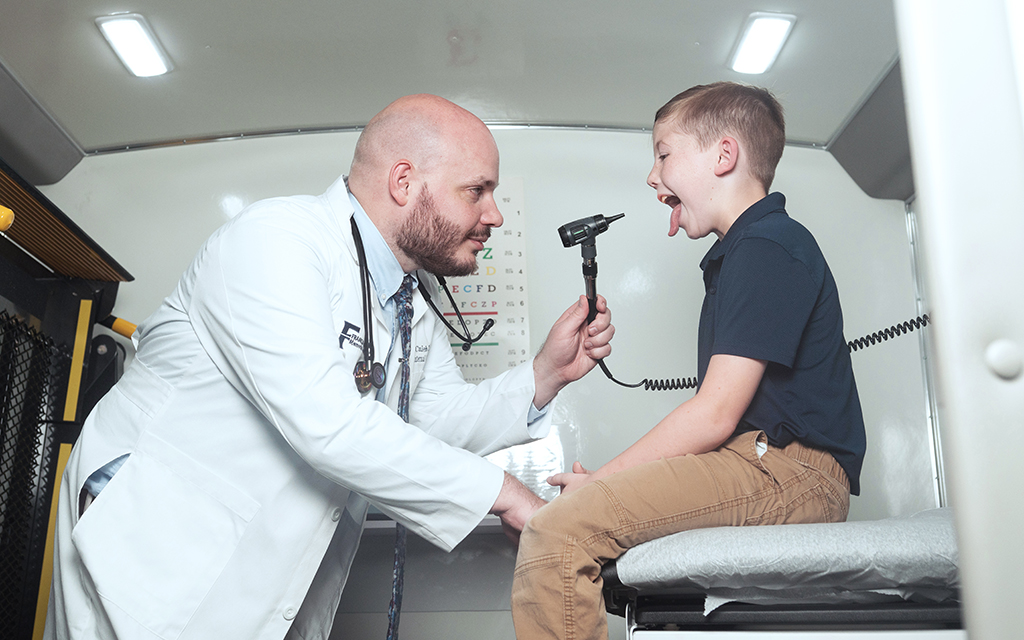Dr. Caleb Zumbro learned many lessons while in college at Mississippi State. One of the most lasting came not from a lecture hall, but the playground at vacation Bible school. There, he watched a 5-year-old conquer his fear of the slide and, finally, come down the chute alone.
“I told him how proud I was that he did it by himself, but he dragged me back to the slide and refused to go down again without me holding his hand,” Zumbro recalled. “I asked him why he wouldn’t do it again alone, and he sagely said, ‘Things are a lot more fun and less scary if you have someone to do them with.’”
Zumbro said that interaction stuck with him and is part of why he went back home to Franklin County as its first and only pediatrician.
“I get to be there for sick kids and worried parents when times are scary and hard, and I can use the wisdom God has given me to make them better and calm their spirits,” Zumbro said.
A 2012 MSU chemical engineering graduate, Zumbro completed dual residencies in pediatrics and internal medicine at the University of Mississippi Medical Center where he earned his medical degree. That double specialty makes him an important commodity in rural Mississippi, where 80 of Mississippi’s 82 counties are medically underserved. The Office of Mississippi Physician Workforce reports the Magnolia State has 67.4 primary care physicians per 100,000 population, compared to the national average of 94.7.
“I get to be the voice of health here, and everybody knows me,” Zumbro said. “There’s not a lot of places where you get to practice old-school rural medicine where you do everything.”
Zumbro, who is originally from Meadville, has worked at Franklin County Memorial Hospital and Clinics since 2022. He and his wife, Bonnie Zumbro from nearby Woodville in Wilkinson County, committed to working in the county before he finished medical school.
“When the hospital knew I was coming, they hired Holly Walker a year before I got here,” Zumbro said of the licensed practical nurse. “She set up a mobile clinic and used it to administer vaccines. When I arrived, we began doing well-child visits, and we started using it as a mobile clinic.”
This doctor’s office on wheels is a big part of how Zumbro takes care of the health of local residents. Although he keeps weekly clinic hours in Bude and Meadville while another doctor handles most of the hospital work, he brings medical care to the front door of the schools.
“Our mobile clinic is a small RV outfitted with a typical exam room, draw station and point-of-care lab,” Zumbro said.
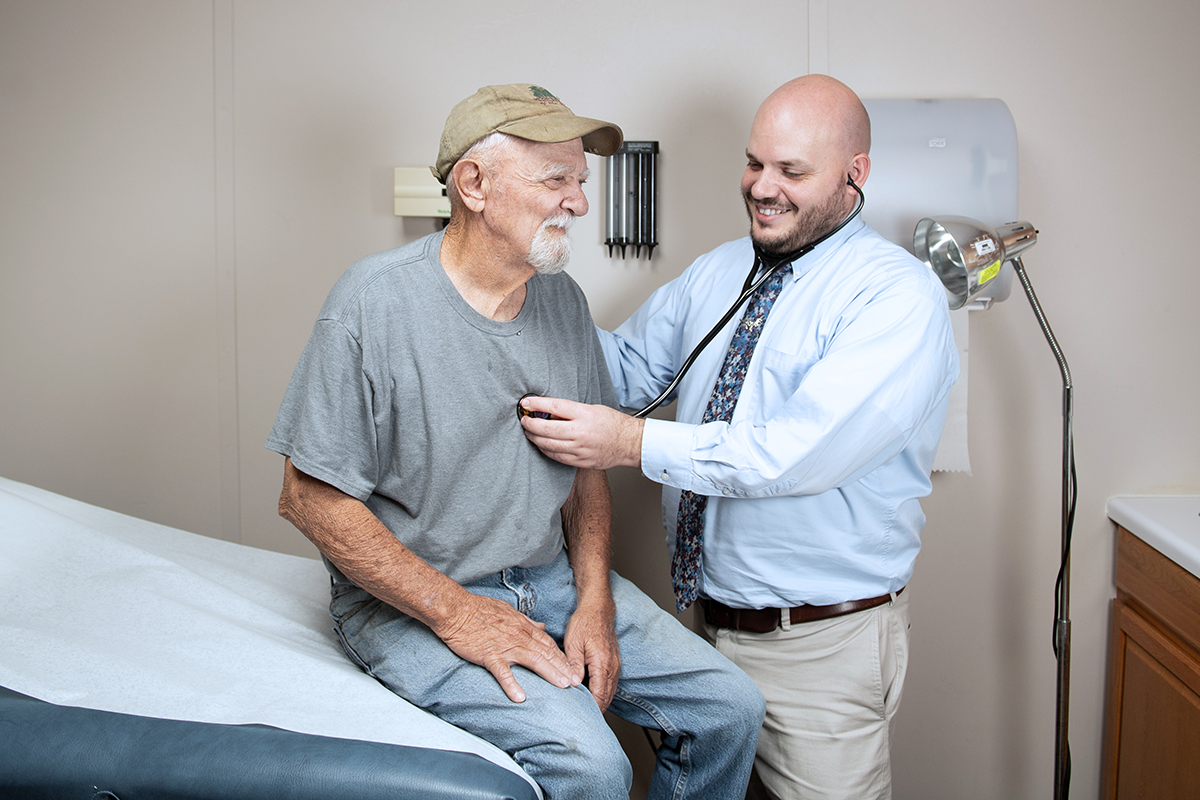
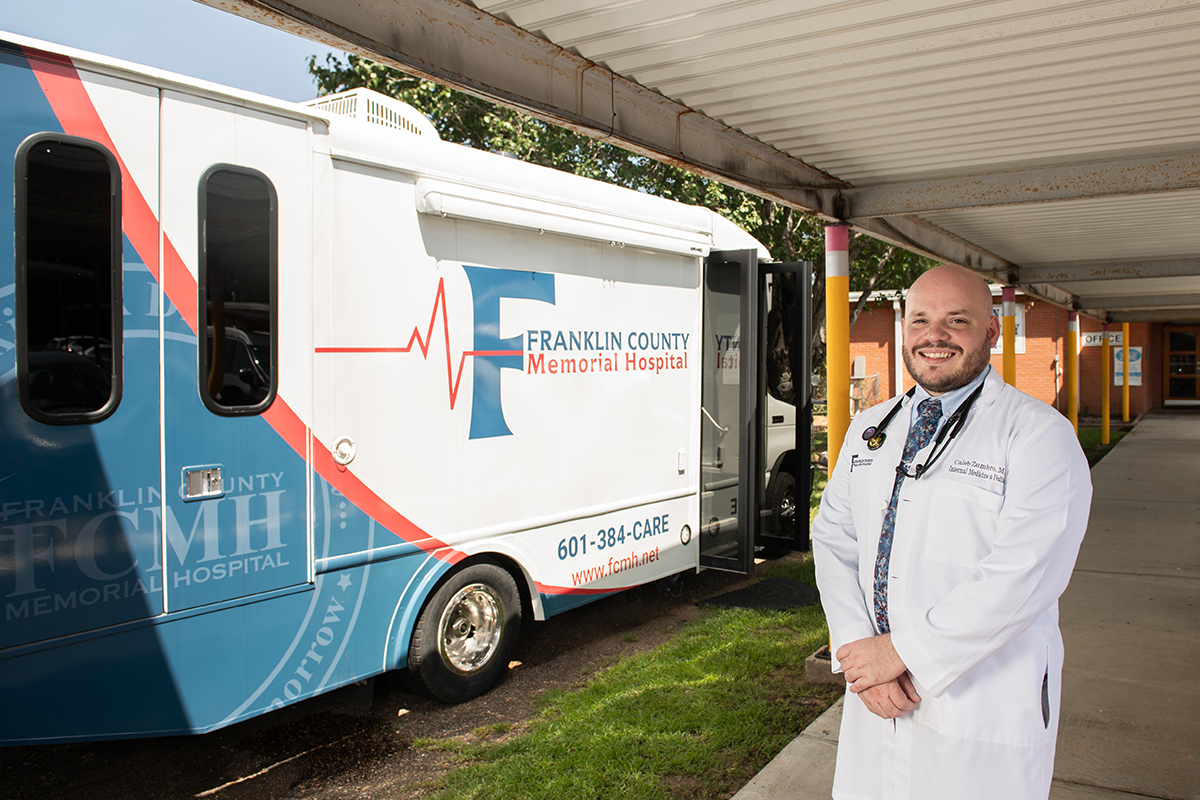
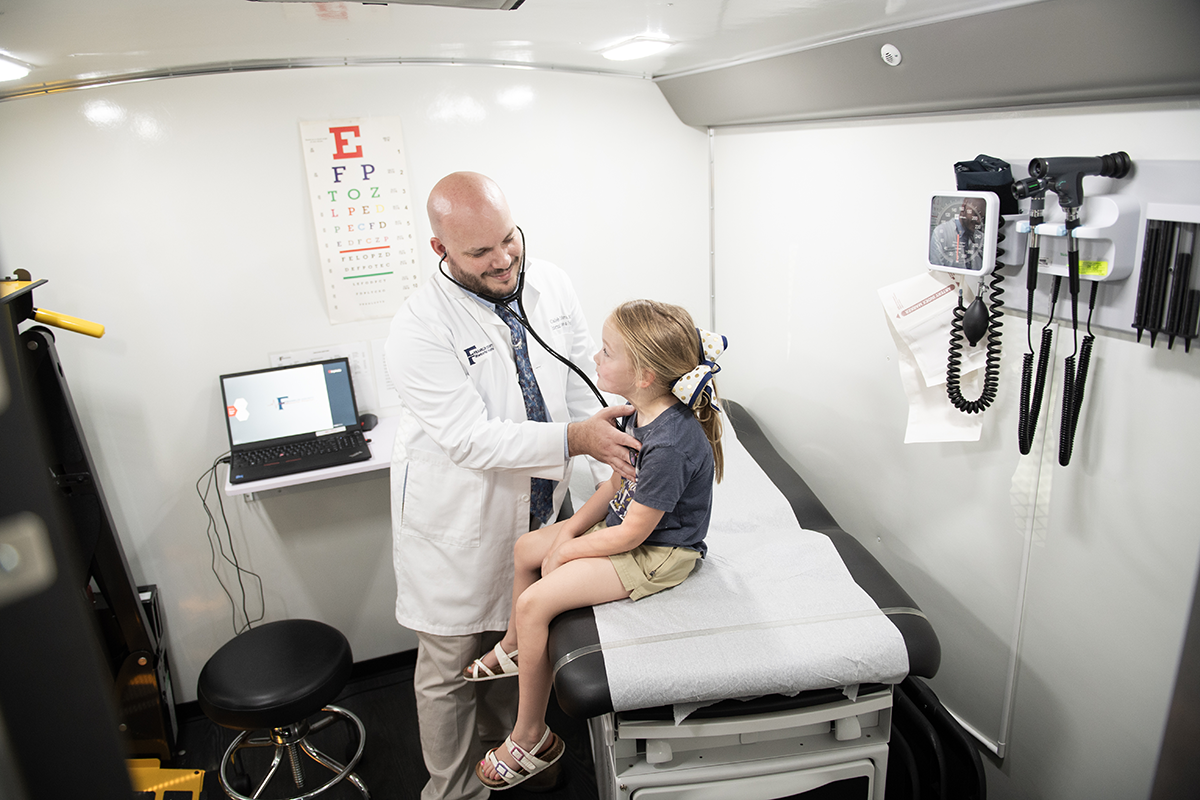
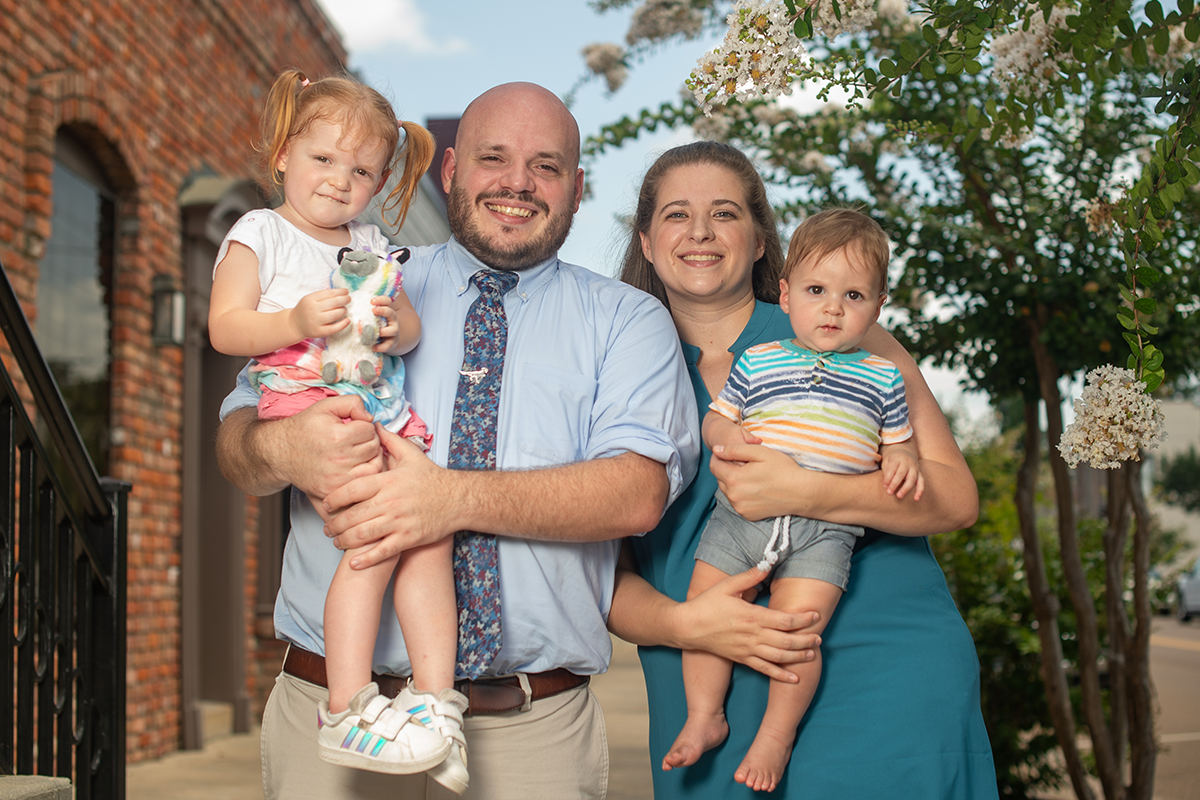
Parents can sign paperwork in advance through the school to authorize Zumbro to exam and treat their children. Often, he administers flu vaccines and allergy shots, but the school nurse can send patients to see the doctor if the consent form is on file.
“If a child is sick, the school nurse will call the parent to ask if their child can see the doctor, and I can go ahead and see the patient while the parent is on the way to pick them up,” Zumbro said. “For a lot of issues like an ear infection, we can save the parents from taking off work because we can see the child and prescribe an antibiotic, and the parents don’t have to leave work.”
Zumbro usually sees about seven kids per school visit and handles a lot of routine work managing their ongoing health needs.
Occasionally, a mobile clinic visit turns into a life-changing diagnostic session. By being able to treat children who may otherwise not be able to see a pediatrician, he has been able to recognize that one child’s repeated bouts with coughing were actually asthma, and a young boy’s testicular cancer was discovered at a very early stage.
Teachers also benefit from the mobile clinic as Zumbro sees them for ongoing health maintenance, such as blood pressure or diabetes management.
Zumbro basically inherited his practice from the previous generation of doctors who handled the medical needs of their community. His efforts have taken the practice in directions it had never gone before.
The result of long hours and a demanding schedule is he does not get to spend a lot of time with his own family. He and his wife have Amelia, 3, and Rowan, 1, but Bonnie Zumbro was prepared for this.
“We have quality time over quantity family time,” she said. “We knew what it would be like before we got married.”
Zumbro describes his work as exhausting but says it’s a privilege he was called to.
“The pride I have in knowing I’m giving back to the community and improving it is a big part of what I do,” he said. “I get to be there for the community that I grew up in, and that gave me a lot of opportunities.
“My family has been here for generations. It means a lot to me to be able to come back and continue that legacy as a Franklin County family,” Zumbro continued. “I get to take care of the adults I grew up with who took care of me as a baby and a child.”
By Bonnie Coblentz, Photos by Jonah Holland

MSU Addressing Rural Medicine Needs
Dr. Caleb Zumbro was introduced to the medical field as a career by working as a counselor for the Rural Medical Science Scholars program offered by the Mississippi State Extension Service.
This summer program works to address the health needs of rural Mississippians by encouraging outstanding rising high school seniors to choose a career in a medical field and stay in the state. Students spend almost three weeks in campus classrooms and shadowing area health professionals to see firsthand what a career in medicine is like.
MSU started this program in 1998 after noting the problems created by limited access to health care. Each year, the program enlists stellar students to get a taste of college life while earning course credit and observing jobs in the medical field.
The picture of rural medical health care in the U.S. is bleak, but the MSU Extension RMSS program is annually narrowing that gap in Mississippi. Since its inception, 494 students have participated, and of those, 58 attended medical school. Today, 30 practice in primary care in the state, while others are still in medical or dental school.
Zumbro is part of a trend identified by the American Association of Medical Colleges that shows more than 75% of residents who received both their undergraduate and graduate medical education in Mississippi remain in the state to practice. This has tripled the Mississippi medical student graduation rate since 2005 and is the fourth best in the nation.
An expected 365 medical school students should graduate each year by 2028.


